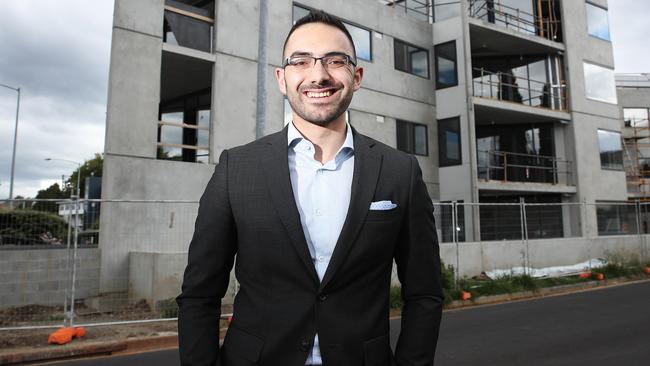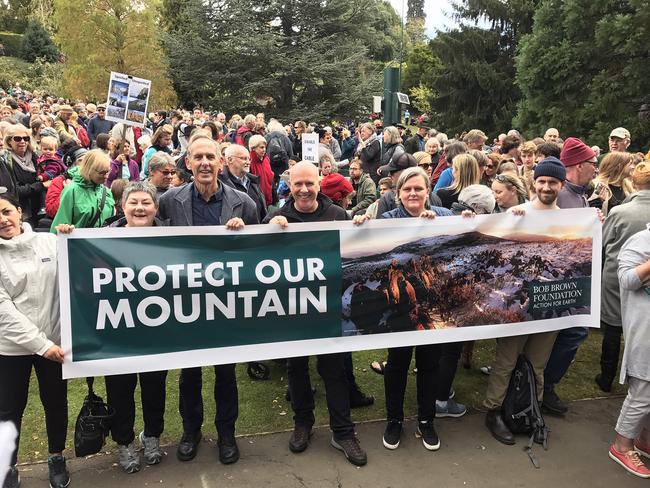Talking Point: Major Projects law will help stamp out lobbyist influence
SIMON BEHRAKIS: Major Projects legislation will keep decision-makers at arm’s length and refine a process that is far too open to political manipulation.
Opinion
Don't miss out on the headlines from Opinion. Followed categories will be added to My News.
DON’T believe the hype, or the messaging coming from anti-development lobbyists.
Rather than taking away from communities and local governments, the proposed Major Projects legislation will help streamline a planning process notoriously difficult for large developments, and avoid planning decisions being made based on political lobbying rather than a project’s compliance with the planning scheme.
With reports of major builders starting to lay off workers due to the pipeline of work drying up, this legislation is needed now more than ever.

The reforms are something I have long been calling for. Last year when speaking to the State Parliament Select Committee on Housing Affordability, I recommended very similar reforms to what are proposed, telling the committee that doing so would help streamline a process that is far too open to political manipulation. This is something we have seen in full force with the long-running cable car issue, groups staging campaigns to pressure elected members to reject a proposal based on issues not relevant to the Planning Scheme.
MORE NEWS:
CIA believes China pressured WHO to delay life-saving coronavirus warnings
Bottles of Pure Tassie Organic juice recalled over toxic fungi patulin discovery
Mum’s anguish: ‘My heart is broken into a million pieces’
We saw the same with the Welcome Stranger debate, where an extremely vocal campaign was waged by both sides of the debate in the media to pressure elected members to vote one way or another on the application.
Such circumstances do not make for good planning outcomes. That is the reason that, once elected, local government representatives are told very quickly to leave political predispositions and other concerns at the door when assessing planning applications, and only consider compliance with the Planning Scheme.

Thanks to targeted campaigns, it is becoming more and more common for councils to receive many hundreds of representations for or against an application. The majority are copy-and-pasted words from a campaign link. It is these applications, which are clearly either the target of co-ordinated campaigns or are of such a large community interest and scale that they should be assessed by a panel that is at arm’s length to any unfortunate campaigns that might be waged.
Vocal opponents of this proposed legislation have trotted out the usual arguments: that the Bill would take away the right of the community to voice their concerns about a project.
MORE NEWS:
Glenorchy furniture salesman stole thousands to feed gambling habit
SANFL has axed player payments for 2020 and it could happen in TSL as well
Don’t let COVID blind you to injustice unfolding before us
This is simply not true. Residents and members of the community would still have the same ability to make representation as they currently do. The primary difference from their perspective is that they would be making said representations to a panel rather than their local council.
These are, however, the arguments coming from these groups. In fact the same group that was accused of using the misleading imagery of Trump Tower in Hobart to elicit community outrage over Fragrance Group development, the Tasmanian Conservation Trust, has a campaign against the Bill, calling it a “fast track for dodgy developers”.
Invoking individual controversial developments, or making outlandish claims of fast-tracking for dodgy developers, and the removal of the community’s role in the application process might serve the interests of the varying groups that seek to maintain their ability to wage political campaigns against developments. It does nothing to accurately inform the public of this issue and, if successful, will only hinder good planning outcomes and development in our state, at a time when we will be needing it most.
Simon Behrakis is an alderman for the City of Hobart and a member of the council’s City Planning Committee.


